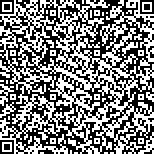| 摘要: |
| [摘要] 目的 分析酒精依赖患者医学应对方式特点及其相关因素。方法 选择2018-12~2019-06于该院就诊的酒精依赖患者89例,采用自制一般资料调查问卷和医学应对方式问卷(MCMQ)作为研究工具对患者的临床特征及医学应对方式进行测评,并与中国常模进行比较,分析患者临床特征与医学应对方式的相关性。结果 89例酒精依赖患者的“面对”项目得分低于常模,而“回避”和“屈服”项目得分高于常模,差异有统计学意义(P<0.05)。患者饮酒年限与“屈服”项目得分呈正相关(P<0.05)。结论 酒精依赖患者面对疾病较少采用“面对”医学应对方式,多采用“回避”、“屈服”的应对方式,并且随着饮酒年限的延长,患者更趋向于采用“屈服”的应对方式。临床医师应鼓励患者采用积极的医学应对方式,提升酒精依赖患者治疗效果及心理健康水平。 |
| 关键词: 酒精依赖 医学应对方式 相关性分析 |
| DOI:10.3969/j.issn.1674-3806.2020.08.14 |
| 分类号:R 749.6+2 |
| 基金项目:广西壮族自治区临床重点专科建设项目(编号:桂卫医发〔2018〕6号) |
|
| Analysis on the characteristics and related factors of medical coping modes in alcohol dependent patients |
|
TAO Guang-yuan, ZHANG Ling, CAO Yong-kang, et al.
|
|
Department of Substance Dependence, Nanning Fifth People′s Hospital, Guangxi 530001, China
|
| Abstract: |
| [Abstract] Objective To analyze the characteristics and related factors of medical coping modes in alcohol dependent patients. Methods Eighty-nine alcohol dependent patients admitted to our hospital were selected from December 2018 to June 2019. The self-made general information questionnaire and the Medical Coping Modes Questionnaire(MCMQ) were used as the research tools to evaluate the patients′ clinical characteristics and medical coping modes, and the evaluated results were compared with those of the national norm of China. The correlation between the patients′ clinical characteristics and medical coping modes was analyzed. Results The scores of “confronce” item in the 89 patients with alcohol dependence were lower than those in the national norm, while the scores of “avoidance” and “resignation” items in the 89 patients with alcohol dependence were higher than those in the national norm, and the differences were statistically significant(P<0.05). The years of drinking alcohol of the alcohol dependent patients was positively correlated with the scores of “resignation” item(P<0.05). Conclusion Alcohol dependent patients are less likely to adopt the medical coping mode of “confronce” in the face of illnesses and are more likely to adopt “avoidance” and “resignation” coping modes. With the extension of drinking years, the patients tend to adopt “resignation” coping mode. Clinicians should encourage the patients to adopt positive medical coping modes to improve the treatment effect and the mental health of the alcohol dependent patients. |
| Key words: Alcohol dependence Medical coping modes Correlation analysis |

